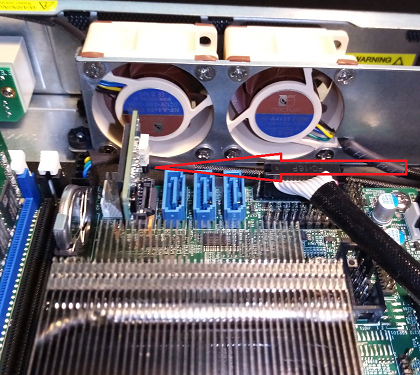-
Yes, after my last reply, I felt odd that I needed the pico-psu.
What did you mean by "control functions fixed in the ATX standard"? Are you referring to "stdby"? What other functions will I be missing?
It's going to up and running 24/7 and with a UPS, so standby isn't a big deal.
Also, you were saying about the the fans, do you think that 150w power supply isn't enough? I mean it's a 20w Atom CPU.Thanks,
-
Hi,
Additional function (ATX) WOL (Wake up on LAN) for example, but this is also not an important factor here, because we are talking about 24 hours
You are right about this and it is definitely recommended to install UPS and pfSense with ZFS file system.
You won’t lose much with the lack of ATX in continuous operation.
For the sake of completeness, I wanted to draw attention to this, so read this too:
https://en.wikipedia.org/wiki/ATXEven without any problems, a 60W PSU would suffice, but a spare is required, so 90 or 120W will suffice. (even if you use 3 pieces FANs)
Consumption of small fans is minimal!As I wrote at the beginning, we use the Epyc series, because of Intel’s vulnerability and this AMD CPU has brutal performance for pfSense.
(but they serve more than 500 customers)The MOBO (Supermicro Epyc 3151) with this CPU consumes 34W + RAMs (16GB ECC!!!) + Addons (Intel I350-F4) + FANs (Noctua 3 pcs.), total 42 - 48W (depending on the load).
So don’t buy a nuclear power plant for power supply tasks

-
@DaddyGo My only concern going AMD is that pfsense is based on FreeBSD, and FreeBSD and psfsense favors the Intel platform more, and I didn't want to run into compatibility issues or hiccups. Also, it's a little more pricey, about $200 more.
Thanks,
-
Hi,
FreeBSD has no problem with AMD.
Epyc is really a bit more expensive.
Epyc is not even required for an SOHO use.
(I just described the experience for the sake of completeness, at first we also used Intel D series)The Intel vulnerability is pretty much already being addressed anyway.
if you think so, report that you succeeded...

-
@DaddyGo Thank you for your help.
-
@DaddyGo Do you know the size of hard drive that I'd need for a pfsense box?
Thanks, -
the pfSense storage capacity requirements they are really minimal:
we used (a few years ago) mSATA SSDs in most cases (Kingston or similar quality, this is important!) 60GB
but due to the development of storage chips, such low-capacity devices are rarely availablerecently we use NVMe SSDs (Supermicro certified) 128 or 256 sizes
like: HDS-TMN0-KXG60ZNV256G (Toshiba) / HDS-TMN0-KXG50ZNV256G (Toshiba)
(smaller size not available)since you only have SATA ports on the MOBO:
would try to get a low capacity 2.5 "Samsung EVO 860 or possibly a- maybe PRO(?), but this is unnecessary
the best solution for you as the MOBO includes a SATA DOM connector,
the original Supermicro SATA DOM SSD, of which there are 16/32/64/128 GB types
https://www.supermicro.com/products/nfo/SATADOM.cfmin addition to the NVMe SSD, we always install a spare 64GB SATA DOM in case the NVMe fails
there is a mirror copy of the system on the SATA DOM
which is activated immediately via IPMI (BIOS boot order) if the main storage is faultyimportant suggestion:
during the first installation select ZFS opportunity
and the swap area, do not leave 2G, as you still have capacity, raise it to a higher valueSATA DOM (64GB):
minimal space requirements, no need for a separate power supply
and fully pfSense compatible!
-
@DaddyGo I'm going to have to back to the drawing board because I just learned that the Atom cpu in the A1SRi-2758F motherboard has a clock signal issue that could brick the server :(
-
I’m not a big fan of Intel Atom CPUs.
What I still think of is the Intel Xeon D series, although here the price is already higher. (this is the analogy of the Epyc series, of course based on Intel CPUs)
https://www.servethehome.com/amd-epyc-3451-benchmarks-and-review/I would definitely keep Supermicro as a manufacturer!
In the really stable miniITX (network appliance) theme, they are currently providing unbeatable quality.I should also add that the Intel Xeon D is equivalent of AMD Epyc. Nearly identical in performance, the price can be decisive.
Due to the application environment, Intel's vulnerability is also a serious factor.
I would never use AMD CPUs anywhere else, I didn’t even do it until I built NGFWs.These may be interesting to look at in Supermicro X10 and X11 series (but as I mentioned the price is higher)
https://www.supermicro.com/en/products/embedded/servers?pro=cputype%3D60%2C99
https://www.supermicro.com/en/products/motherboards/embedded-iot-boards -
@DaddyGo, actually instead of using a custom made cable for 12V supply out of PWS-203-1H psu, one can use the connected 8 pin 12v line into the 4 pin onboard connector, keeping the yellow lines at the left. One just need to use the bottom four pins of the connector. To insert the cable align the pins of the connector to pin 1 and 3 side of onboard header and just push till the point it goes in. It will not go till the bottom due to obstruction from adjacent USB header but a stable connection can be achived.
Now just the PS_On of the ATX connector to be grounded using a jumper for continous 12v supply. This is also done on the custom connector as shown by you.
Copyright 2025 Rubicon Communications LLC (Netgate). All rights reserved.